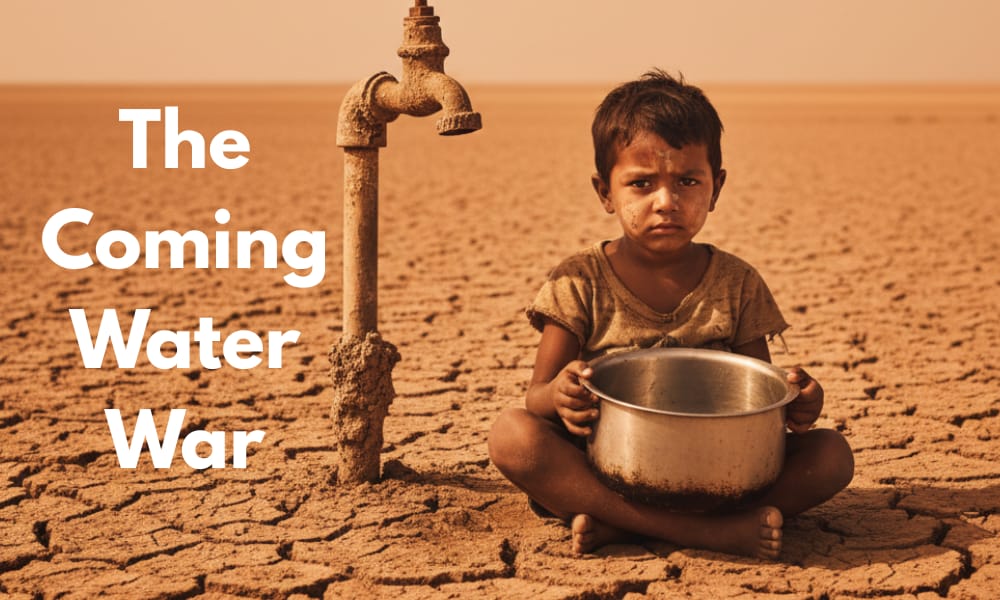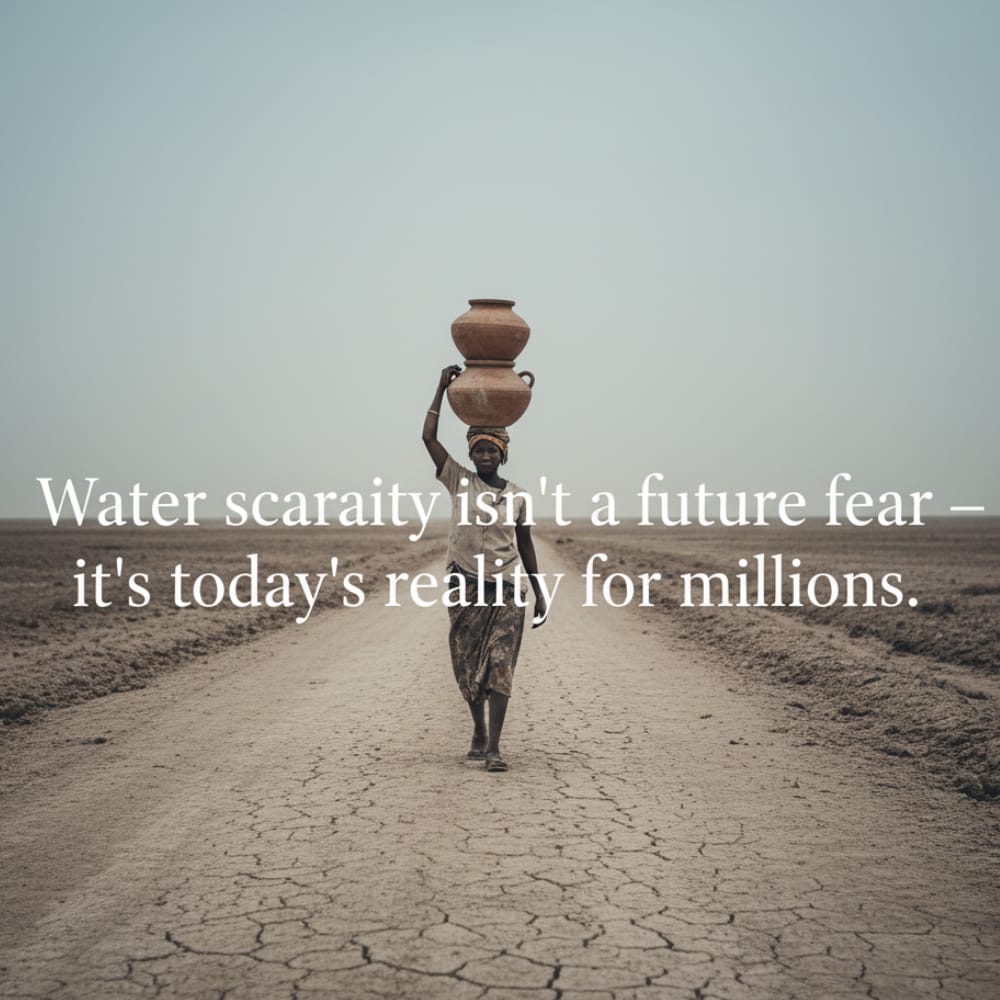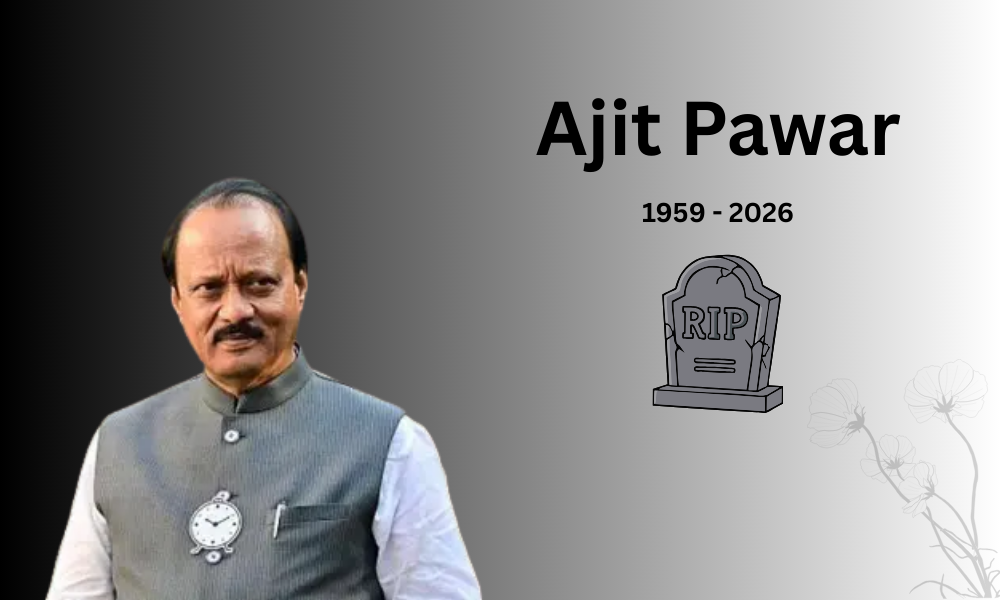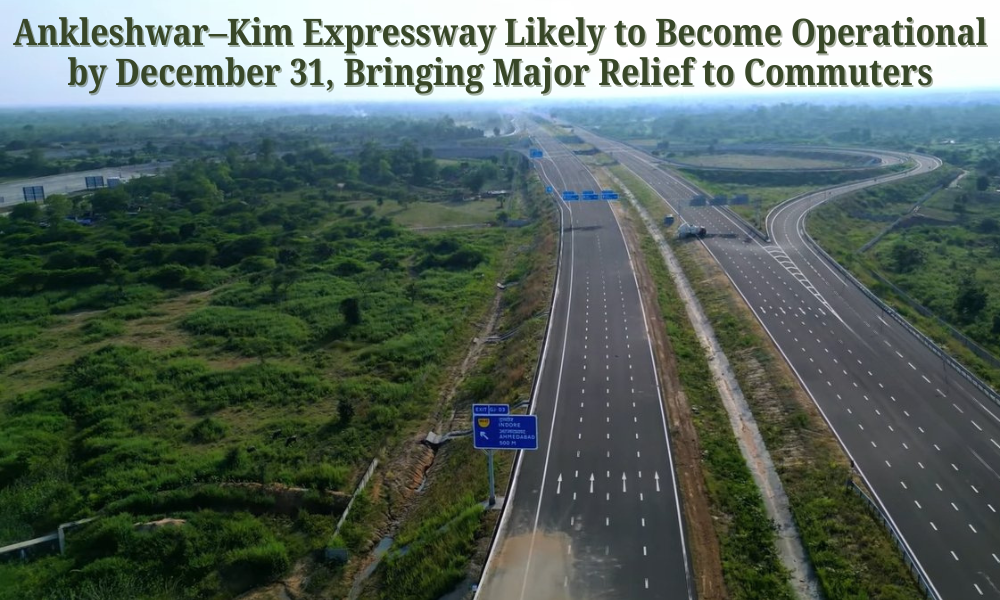The Coming Water War: Why India’s Another Huge Emergency Is As of now Here
A long time ago, a companion in Chennai told me how her mornings began, not with tea, but with a bucket. She would wake up before Morning just to fill a few containers from the tanker that arrived in her street. Missing it meant no water for the day.
It sounded stunning back at that point, but nowadays, it’s becoming a recognizable story over India. From Maharashtra’s broken farmlands to Delhi’s overheated summers, water is discreetly turning into our most delicate life saver. Specialists have long cautioned that India’s other huge emergency will be about water, not oil—and it’s no longer a future concern. It’s happening right now.

The Thirst Underneath Our Feet
India has only approximately 4% of the world’s freshwater but about one-fifth of its individuals. That math alone ought to make us stop.
In towns, wells are running more profoundly each year. In cities, borewells frequently yield nothing but air. Experts warn that cities like Delhi, Bengaluru, and Hyderabad could completely run out of groundwater in the next decade.
How We Misplaced Balance
This emergency didn’t happen overnight. For centuries, India had a wonderful beat with water, stepwells in Gujarat, tanks in Tamil Nadu, and antiquated canals that worked in harmony with precipitation. But modernization changed our relationship with nature.
Cities developed quicker than they could plan, covering soil with concrete and leaving rainwater nowhere to soak in.
Add to that the developing shadow of climate change, floods in one locale, dry seasons in another, and we have the culminating storm.
The Human Cost
Numbers can’t completely clarify what it feels like to run out of water.
In the dry belt of Marathwada, agriculturists have been abandoning their areas since their wells turned to tidy. In a few urban ghettos, ladies line up at 3 a.m. for a few buckets from a shared tap. In contrast, gated societies pay tanker trucks thousands of rupees for day by day supply.
This divide has discreetly made a new form of inequality, the water gap, where survival presently depends on what you can manage. And when water gets to be a benefit, the meaning of advancement itself begins to crumble.
Nature Is Paying Too
As people battle for each drop, nature is losing its share. Waterways like the Yamuna and Musi have turned dark with squander. Lakes that once cooled cities are contracting behind loft blocks.
When wetlands disappear, precipitation patterns move. When groundwater drops, soil solidifies. Each missing river fish, each dried-up lake, is a little warning that we keep ignoring.
Efforts That Require More Depth
The government programs like the Jal Jeevan Mission and Atal Bhujal Yojana, are pointing to move forward provincial water supply and revive groundwater. A few cities are making rainwater harvesting mandatory.
But progress has been inconsistent. Arrangements on paper don’t continuously turn into activity on the ground. Stores dry up, channels go unmaintained, and corruption leaks in. In the meantime, water-hungry crops and businesses proceed unchecked.
The difficult truth is: we can’t fix a leaking bucket just by painting it new.

So, What Can Be Done?
There’s still hope, if we act wisely and collectively.
- Bring Back Ancient Wisdom
Before innovation, India as of now had solutions. Stepwells, lakes, and tanks managed water delightfully. Reviving those frameworks and making them a portion of urban planning once more might alter everything.
- Reexamine What We Grow
It makes no sense to develop paddy or sugarcane in drought-prone locales. Empowering agriculturists to switch to millets and pulses can spare billions of liters and earn them way better profits.
- Plan Smarter Cities
Cities ought to be built around water, not the other way around. Each modern building must have water collecting and reusing systems, not as a run the show on paper, but as an implemented reality.
- Change Regular Habits
It sounds little, but it includes up. Settle that spilling tap. Select a bucket over a shower. Turn off the tap whereas brushing. If 1.4 billion individuals made one little change, the swell would be enormous.
The Greater Picture: A Matter of Justice
Behind each empty well lies an uncomfortable question: who gets to choose who has water and who doesn’t?
In numerous locales, ladies carry the burden of strolling miles to bring it. In cities, businesses draw gigantic sums whereas adjacent communities battle. The battle for water isn’t just about climate or policy, it’s about fairness, nobility, and survival.
If we proceed treating water as an asset as it were for those who can pay for it, we’re heading toward an ethical as well as environmental disaster.
Conclusion
Before the Wells Go Silent
We’ve continuously expected that water will stream until the end of time, that waterways will discover their way, and that rain will by one means or another come. But if the last few years have shown anything, it’s that nature doesn’t wait for us to wake up.
If India needs to dodge its following enormous war, not over land or legislative issues but over water, it has to start presently, drop by drop, town by town, domestic by domestic. Since once the wells run dry, it’s not just water we’ll lose, it’s time.








